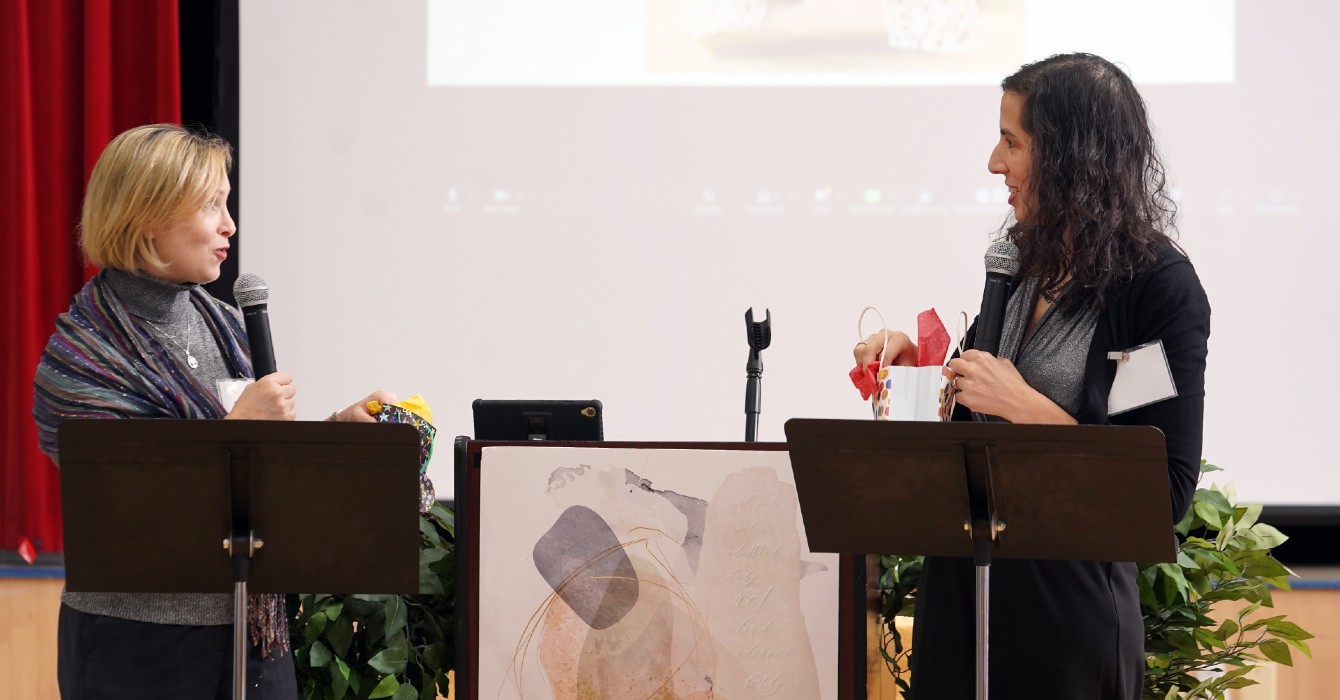My first pastoral planning process went completely off the rails.
I was 27, working with the teenage children of immigrant industrial farm workers, mostly of Mexican descent and members of our church. The “jóvenes”were happy to talk about issues they cared about and have a safe space to hang out. After more than a year of home visits and Tuesday night meetings in the kitchen of the church, I began to notice some talent emerging -- song leading, recruiting, welcoming others.
At the same time, I was studying Hispanic/Latino theology and ministry, impelled by the formative grassroots pastoral planning experiences of the II Encuentro Nacional Hispano de Pastoral. I longed to replicate even a taste of this empowering exercise of voice and group discernment with these young people.
It was ambitious to think I could pull off a day of planning with the emerging youth leaders, along with an interested parent couple and our generally supportive associate pastor, but I was willing to try. When one of the crew-leader parents offered to host and cook for the nine of us, the day seemed to fall into place.
About halfway into the planning day, not long after the young people, who had been divided into smaller groups, presented their ideas, the associate pastor suddenly lifted his 6-foot frame out of his chair and declared: “That’s it. This isn’t going to work. This has been a waste of time. I think we should all go home.” My jaw dropped. The parents and teens exchanged glances with me and with each other, then began to pack up.
I was devastated. I felt that I had let the group down. Even though I knew that the associate pastor was wrong to have disrespected me and the group, I also knew that I lacked confidence and skill. The process that day had been long, even arduous. Did it have to be? What were we missing?
Researchers and practitioners recognize that facilitating collaborative problem solving involves a diverse set of skills to manage the power dynamics of people with different knowledge, status and cultures working together. There are two complex sets of processes going on at the same time: the social and the cognitive.
On the cognitive side, groups working collaboratively need to generate creative and appropriate possible solutions, reduce and clarify the many ideas generated, and organize, evaluate, and build consensus around the best ideas to elaborate and implement. Though the process does not have to be arduous, the load on the brains and bodies of participants can be heavy.
A set of structured processes and principles for making the load lighter are embodied in group facilitation methods called the Technology of Participation, originally developed in an intentional Christian community responding to race inequity and social injustice in the 1960s. Facilitators have used the methods in many settings around the world, ranging from community development to public- and private-sector problem solving.
Today, these methods are less common in church circles, but they are being rediscovered as we seek to generate new thinking, imagination and energy, bringing together voices from the margins to respond to the Spirit at work in the world in community.
One example of success with these methods in ministry comes from Shonnie Streder, the Blue Ridge District vitality associate in the Western North Carolina Conference of the United Methodist Church. Overwhelmed with leading meetings that ranged from brainstorming to long-term planning with clergy and lay leaders from more than a hundred rural and urban churches, she learned -- and now continuously employs -- the ToP facilitation methods.
Streder gave permission to share what she wrote of her experience: “Now I feel confident in leading focused conversations for congregations as well as our district strategy team, a consensus and strategy building group of 22 representing 125 congregations in our district. I have been overjoyed seeing leaders and congregations come together in this process.”
Collaborative problem solving relies on trained leaders who believe in the liberative nature of the work and are willing to risk failure in order to help groups succeed. We can pay outside trained facilitators to help us (especially as we are all learning how to do this well in virtual spaces), but we can also commit to learn, practice and share these facilitative leadership roles and processes ourselves. While we don’t all need to become experts, we can develop this expertise among members of our teams, building internal capacity to facilitate repeated patterns of collaboration.
Looking back at my first “failed” effort, a different analysis emerges. The associate pastor wasn’t schooled or invested in the collaborative process as soul-healing and empowering work. He could not see how I would lead us out of what Sam Kaner calls the “groan zone,” where participants feel overwhelmed by the wide range of emerging ideas with no clarity on how to reduce and evaluate them for collective action. The concurrent social and cognitive challenges were hard for him -- and really, for all of us. I didn’t make the collaborative process clear for us to navigate.
In ministry, we are confronted with duties and challenges that are complex and ambiguous, deserving of high-quality solutions. When our work requires a concerted effort from a group of people who depend on one another, collaborative problem solving is necessary -- and possible.
If, as Donald Senior writes (citing “A Handbook for Seminary Presidents”), leadership is “the ability to influence others toward a common mission,” then a facilitative leader is one who makes that work toward a common mission embodied -- in Christian contexts, calling forth the engaged intelligence of members of the body of Christ for ministry through collaborative planning.
People who have never been invited to the conversation or respected for their ideas can learn to participate as equals in these processes of presenting, clarifying, organizing, negotiating and implementing the solutions we so desperately need today.
Facilitative leadership is necessary and possible if we believe that we are all called to discipleship and that we all have gifts for ministry in the church and the world. It is our most promising tool going forward in this age of complex social, political, ecumenical and personal challenges -- a tool for hope, help and strength in ministry and in life.




















